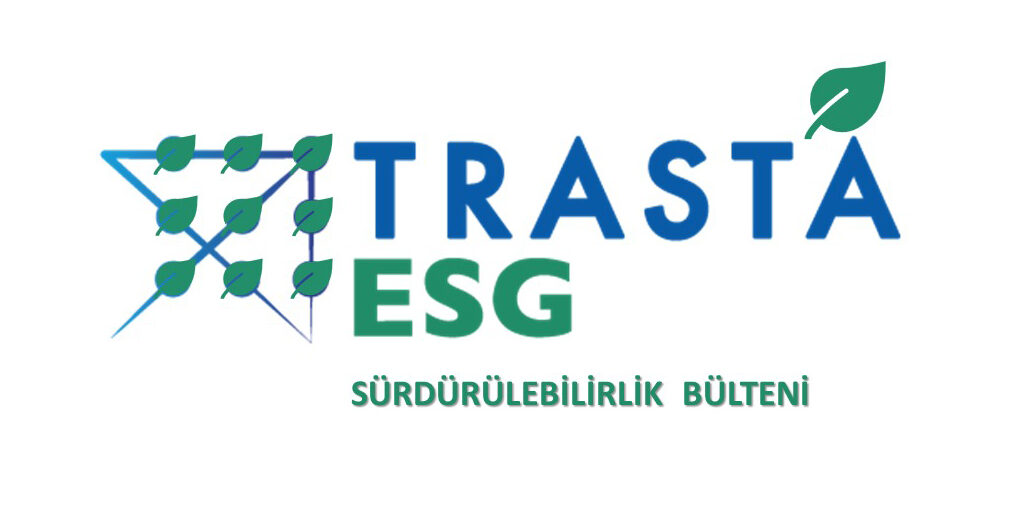MESSAGES FROM US
Dear Readers,
In this issue, we spotlight the dangers posed by the inadequacy of global climate commitments, while also featuring a key publication: the OECD Global Corporate Sustainability Report (2025). We believe the report’s striking statistical findings will capture your interest.
Stay sustainable,
ÖZGÜN ÇINAR, CEO

ESG NEWS
- Deloitte & Credibl: AI Platform for Climate Disclosures Deloitte Australia and Credibl have launched an AI-powered platform to streamline climate-related disclosures. The tool analyses Scope 1-2-3 emissions and accelerates regulatory compliance. 🔗 DETAY
- U.S. Withdraws Support for Battery Ventures Federal funding for battery companies like Ascend Elements has been revoked, raising uncertainty around green energy investments. 🔗 DETAY
- Formula 1 Shifts to Synthetic Fuels Formula 1 has begun testing carbon-neutral synthetic fuels, signalling a potential shift toward sustainability in motorsports. 🔗 DETAY
- Global Climate Plans Fall Short According to The Guardian, current national climate pledges fall drastically short of the 42% emissions reduction target by 2030—delivering only a 2% drop. This jeopardizes the goals of the Paris Agreement. 🔗 DETAY

- Insurance Sector Shaken by Climate Crisis Climate-related disasters in the U.S. are pushing insurance companies toward insolvency. Rising claims and withdrawals from high-risk zones may signal an economic shock. 🔗 DETAY
- Bill Gates: “The Climate Crisis Isn’t That Bad” Bill Gates argues that climate change is overstated. Scientists warn this rhetoric could mislead the public and delay climate action. 🔗 DETAY
- CO₂ Emissions Trading May Be Ineffective Experts in Germany caution that the carbon pricing system set to launch in 2027 may fail to reduce emissions. Prices are too low, and incentives too weak. 🔗 DETAY
🍃 GREEN CORNER 🍃
OECD GLOBAL CORPORATE SUSTAINABILITY REPORT (2025)
The OECD Global Corporate Sustainability Report (2025) reveals a global rise in sustainability disclosures, while emphasizing the need for companies to continue efforts that enhance long-term growth potential.
Key findings include:
- In 2022, companies representing 86% of global market value disclosed sustainability information; this rose to 91% in 2024.
- Approximately 12,900 companies disclosed sustainability data in 2024, up from 9,600 in 2022.
- Sector-wise, energy companies had the highest disclosure rate at 94%, while real estate had the lowest at 78%.
- In 2024, companies representing 88% of market value disclosed Scope 1 and 2 emissions; 76% disclosed at least one Scope 3 category.
- 42% of companies had their sustainability data externally assured. Of these, 56% opted for limited assurance, and 17% for reasonable assurance. Globally, over half of assurances are provided by auditors.
- Institutional investors hold roughly 35% of shares in both the top 100 emitters and the top 100 green patent filers. The public sector holds 20% only in high-emission companies.
- Of the top 100 emitters, 35 are in the energy sector. Institutional investors own 36% of these, while the public sector owns 18%.
- More than half of the top 100 green patent holders are based in Japan, followed by the U.S., advanced Asia-Pacific, and European firms.
- Sustainability-linked variable pay for senior executives rose to 67% in 2024 (from 60% in 2022).
- 94% of energy companies disclose sustainability data, and they account for 31% of global emissions.
- State-owned energy firms contribute one-third of sector emissions.
- Between 2015–2024, net cash flow from energy operations rose by 32%, tripling dividends and share buybacks. However, investment spending increased by only 5%.
- Sustainability disclosures are growing, but further alignment with G20/OECD Corporate Governance Principles is needed.
- Wider adoption of the ISSA 5000 standard could strengthen trust in assurance practices.



 Türkçe
Türkçe